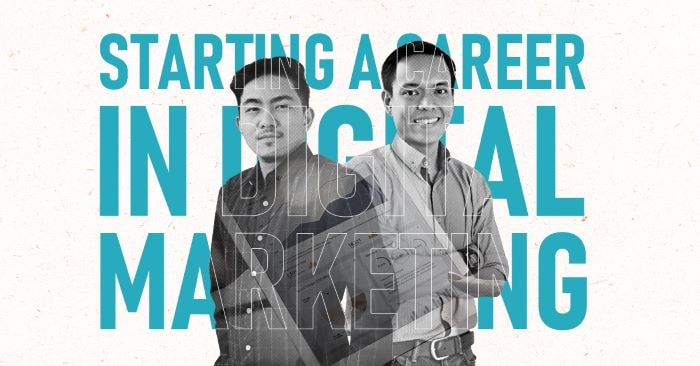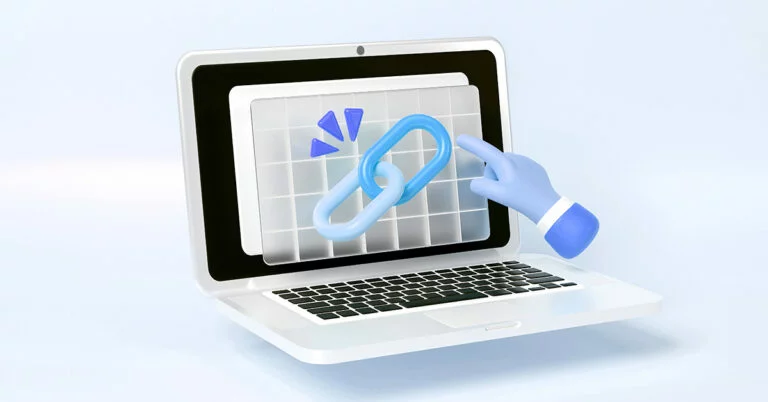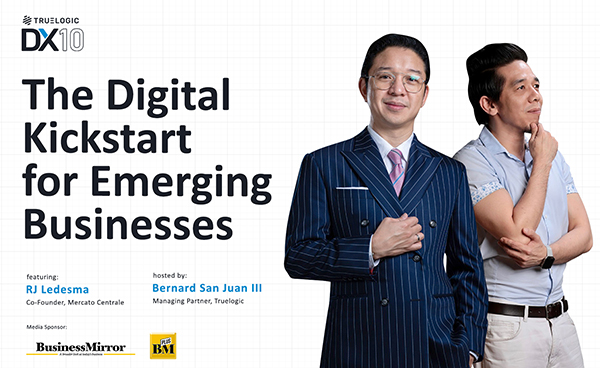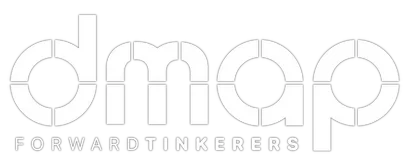Truelogic Episode 28 Recap: Starting a Career in Digital Marketing

Are you wondering if digital marketing is the right career for you?
According to LinkedIn, the Digital Marketing Specialist role is among the top 10 most in-demand jobs, with 860,000 job openings. The most requested experience in digital marketing includes social media, content strategy, SEO, analytics, and more.
With so many opportunities for professionals, from creative to technical, now is the perfect time to kickstart your career in digital marketing.
In today’s Truelogic DX Podcast, we will familiarize ourselves with careers in digital marketing, what it takes to land one, and how it leads to better opportunities.
Podcast Transcription
Ibarra Villaseran: Welcome to another episode of the Truelogic DX Podcast. My name is Ibarra. I’m the client service director for Truelogic. And with us today is Eugene Pidlaoan, our HR business partner. Today, we’re going to discuss something interesting, like a career in digital marketing. So let’s start the show, Eugene.
Demands and Opportunities in Digital Marketing in the Philippines
Ibarra Villaseran: You know, digital marketing has always been a buzzword. Everybody says it: digital marketing, digital marketing. Is there a demand for digital marketers?
Eugene Pidlaoan: In reality, there is an increased demand for digital marketing professionals worldwide, not just in the Philippines per se. There are a lot of them outside the Philippines. And in reality, if you were to look at LinkedIn, you would see 860,000 jobs primarily in digital marketing. And not only that, but when the pandemic happened, people realized that there was a good opportunity in digital marketing.
Ibarra Villaseran: Ah, so it’s a number that we can also see online? So it’s approximately a hundred thousand openings on LinkedIn. Just go on LinkedIn, you’re going to see it there, and just type in digital marketing and it’ll all come out. Normally, when you say digital marketing, what sort of opportunities show up there?
Eugene Pidlaoan: I want to break it down into two things. If you are in the Philippine setting, people will always relate digital marketing to social media. In reality, there are a lot of opportunities in digital. So, to name a few, there are pay-per-click, SEO, and content. Even web development and web design. For us, I could say that it really depends on you. If you want to start with a general approach first and become a specialist, later on, it’s also good if you go down a specialist path; you acquire more knowledge and eventually translate that to a generalist approach.
Ibarra Villaseran: You opened up a lot of topics there. So the first topic is that you are saying that in the Philippine context, I like that, which is not locally. When we get inquiries, sometimes it is that they want digital marketing, and true enough, it leads to social media. But aside from social media, you’ll notice that we’re not just servicing the Philippine market. We’re also looking at other territories as well. So when it gets to that, is there room to expand? Let’s say what opportunities or what disciplines to enter into.
Eugene Pidlaoan: Yes. As mentioned, it’s not just about social media. There is SEO, SCM, content, and copywriting. You could also include web development and web design. But again, let me just emphasize that if you really want to start your career in digital marketing, start now. People keep on saying that digital marketing is the future. In reality, digital marketing is the present. So if you want to start your career in digital, do it now. I mean, we all have imposter syndrome at times. But don’t let it impede what they want to do today.
Ibarra Villaseran: You were talking earlier about a generalist or a specialist. Maybe we can drill in a little further, which is in terms of what their approach is to digital marketing. You were saying that people say there are many avenues to enter digital marketing, which is that you can be a generalist, which is overall digital marketing. You have an overview of what each discipline does to other people. They choose to dive into, let’s say, SEO. So, admittedly, they don’t necessarily know what we used to call pay-per-click, but now it’s Google ads, but you know, they’re specializing in SEO first. Is there an advantage if you’ve become a generalist first or if you’ve become a specialist?
Eugene Pidlaoan: I think it really would depend on where they wanted to start. Some guys would want to start off as a generalist and become a specialist. One good thing about that is that they built a specific foundation. Again, digital marketing is a game of strategy. I believe that you cannot make improvements to that strategy alone if you do not have a strong foundation. But if you are referring to a specific career path, you want to become an SCM someday. Sometimes your path will be social media first and then paid media. Sometimes with SEO, you can start as a developer or content marketer, and then they will jump to being an SEO specialist.
Ibarra Villaseran: So it depends on… I guess what you’re saying is that there are a lot of entry points into digital marketing.
Eugene Pidlaoan: Because there is no such thing as a one-size-fits-all solution in digital marketing.
Ibarra Villaseran: That’s right. Let me just note to our listeners that, you know, each discipline is like an entire universe to jump into like there’s just so much to learn. Some people have stayed in SEO for years. Some in social media, of course, there’s content also, and so it depends on how you want to enter the space or what your interests are. Do you find, Eugene, that there’s a lot of variation in the people that you interview? Some started in social media, some started in paid, and some really stayed in SEO and are only now venturing into, I dunno, web dev. Do you get those?
Eugene Pidlaoan: Yes. There are a couple of guys like that too. And a special shout out to Ayeng for doing that for 13 years.
Ibarra Villaseran: He’s one of our key team members, and he’s just been going from discipline to discipline. How about for the ones that were generalists? Do you find any candidates who are strong generalists?
Eugene Pidlaoan: Of course, yes, there are still a couple like that. But some people are somehow fascinated with the thought that if you want to start your career in digital marketing, you have already mastered the skills in email marketing, content, SEO, and the like. But in reality, there are a couple of things that you can do if you want to become a digital marketer. One such example is research skills.
When you’re in digital marketing, you have to find what’s relevant for you, and out there, there could be a lot of resources stating that you should do this or you should do that. What’s important here is to find what stands out for you about digital marketing.
Ibarra Villaseran: Interesting. What you’re saying is that, so we’re talking about generalists now and you’re talking about research and what interests you. So what you find is that there isn’t necessarily a true generalist here. More often than not, they are anchored in one of the disciplines.
Eugene Pidlaoan: Yes, most likely.
What Skills Do You Need To Be A Digital Marketer?
Ibarra Villaseran: Well, one thing is that the nice thing about digital marketing is that it’s all connected. What I find is that when I also interview people along with Eugene, one thing leads to the other. Very rarely do you see things in silos? So as you master one, you’re going to reach the fringes of how it affects the other discipline, which is interesting.
And you tend to find this, as Eugene was saying, in research where you’re trying to deepen your craft. How often do you see this, Eugene, in terms of the people that you interview? Are they naturally curious?
Eugene Pidlaoan: Are they naturally curious? In reality, no, but if you want to become a digital marketer, you have to have this skill. Getting into digital marketing is one thing; staying in digital marketing is more than that. So if you want to have a sustainable digital marketing career, later on, research will play an important part.
Ibarra Villaseran: So you’d say that having skill in one discipline is one thing, but what will set you apart is really how you’re able to, well, research and deepen your knowledge and your curiosity in one, which you don’t find in all people. Aside from analytical skills, is there anything else that will be integral here? So, besides research and analysis, is there anything else you discover that hiring managers want?
Eugene Pidlaoan: I could say three things on top of that. One is communication skills. People would somehow mistake this for having perfect grammar, spelling, punctuation, and the like. What I’m just about is you being communicative. At the end of the day, when you have your data, when you make decisions out of it, you also have to relay it to others. And for you to relay it to others, you have to make sure that each person understands what you’re communicating.
Another thing is design thinking. I mean, it might sound complicated, but it means you have to understand because that’s being part of an agency. You will not be interacting with only one client. And your strategy in one specific area may not always be relevant to the other projects that you have. So when you get into a project, when you encounter something, you at least have to understand who the audience will be and even to the point where you need to understand the culture of the project’s participants. So you also have to incorporate that. Lastly, do not be apprehensive about technology. Embracing the fact that we are talking about some technology in digital marketing is important.
Ibarra Villaseran: It’s funny because when you find people who are technology averse, they have a claim to be digital marketers. Do you still see those in interviews?
Eugene Pidlaoan: Yes, yes. There still are. One of the basic questions that we ask is, what is a search engine? We’re not asking for something more, but we are expecting at least an understanding of those things.
Ibarra Villaseran: So you’re asking them to, at the very least, be a citizen of the current world and be aware of these things.
Just to go back, you did say advertising, because I think that’s a good point. I do tend to outline, like, certain parameters with regard to the candidates that we’re looking for. And part of it is communication and advertising, which you mentioned, like, who are we talking to? So discipline is not just communication; it’s finding out exactly who we’re talking to. What insight did we derive?
How do we address that reason to believe? And then, of course, tone and manner. Do you find that people are technically skilled yet lack the skill of communication? Do you also see that?
Eugene Pidlaoan: Yes. But I think this is a different situation. In reality, you can become a good digital marketer because you are the only one doing the campaign, like the entire life cycle of it. Eventually, if you aspire to become a leader or a subject matter expert, you also have to share your knowledge with others. That’s why communication, again, is important.
Ibarra Villaseran: So now is your opening, the aspect of knowing that there are different disciplines and you need to be able to communicate with these other disciplines as well as what your campaign is. Do you find people with this sort of experience as well, where they’re used to interacting, like in a team environment? Or do you find people that are more of a lone wolf on the website? In my role, what do you encounter out there?
Eugene Pidlaoan: I’d say the majority are part of a team.
Why Choose a Career in Digital Marketing?
Ibarra Villaseran: So, given that these skills are combined to varying degrees, why choose a career in digital marketing?
Eugene Pidlaoan: So, for one, we could say that when you want to become a digital marketer, there’s no specific degree required. People would say that I would want to become a digital marketer because I’m a communications graduate. I’m an advertising graduate and all those things. But these things don’t matter. I mean, it could be, but in reality, that’s not 100% of what you would be putting out there to get the role. In digital marketing as well, you can have different paths. You can start on your own. You can become a freelancer. You can become an entrepreneur eventually.
And if, for example, you choose to become an employee, there is a high demand in the market now. As mentioned, there are 860,000 jobs just on LinkedIn alone, particularly talking about a certain job portal. And chances are, if you get a career in digital marketing, you will also get a good salary package.
Ibarra-Villaseran: You did say that you know, just in case they want to work in a corporation or a company or an agency, but a career in digital marketing also opens up the world of freelancing. You will encounter a lot of freelancers out there in digital marketing.
Eugene Pidlaoan: Yes. So there are two paths again. Sometimes they started as freelancers, and then they would become employees. Sometimes, as an employee, they would then transition to doing freelance work. Then the others, if they want to step up to another level, will build their own company, hiring other freelancers and probably hiring other employees.
Here in the Philippines, a lot of people also do that. If you check their profile, they originally started as a digital marketer, like literally a generalist in digital marketing. Then they saw an opportunity in the Philippine market for digital marketing. They created their own group.
Ibarra Villaseran: So there are options that open up if you’re in digital marketing. So, it’s not just the corporate or agency world. Sometimes it opens up your entrepreneurial side. You start as a freelancer, or as you said, you hire other freelancers. Next thing you know, you’re running your own little agency, servicing clients. I have a couple of questions to summarize. So, do you think having a background in digital marketing now gives you an advantage or is it more of a qualifier? You must understand, at the very least, digital marketing.
Eugene Pidlaoan: I would say that if you really want to start your career in digital marketing, first you have to know what your purpose is. Regardless of whether it’s monetary, it’s motivation, passion, or whatever. But you have to start that path now. I mean, start with an end goal in mind and start with a specific purpose. At the end of the day, it’s hard to jump into digital marketing just by saying, “I want it.” Then, after six months, you think that “Digital marketing is hard. I want to quit.’ Digital marketing is continuous learning, and you also have to embrace that.
Ibarra Villaseran: Right. Well, thank you, Eugene. So catch the second part of this episode as Eugene and I will talk about some tips on how to land a job and how to improve your skills in digital marketing. So thank you for listening to the Truelogic DX podcast. For more digital marketing resources, visit truelogic.com.ph or follow us on Facebook, YouTube, and LinkedIn with the handle @truelogic. Don’t forget to subscribe to our Spotify, Google, and Apple accounts and set up your alert for new episodes. We’ll see you in the next episode.










